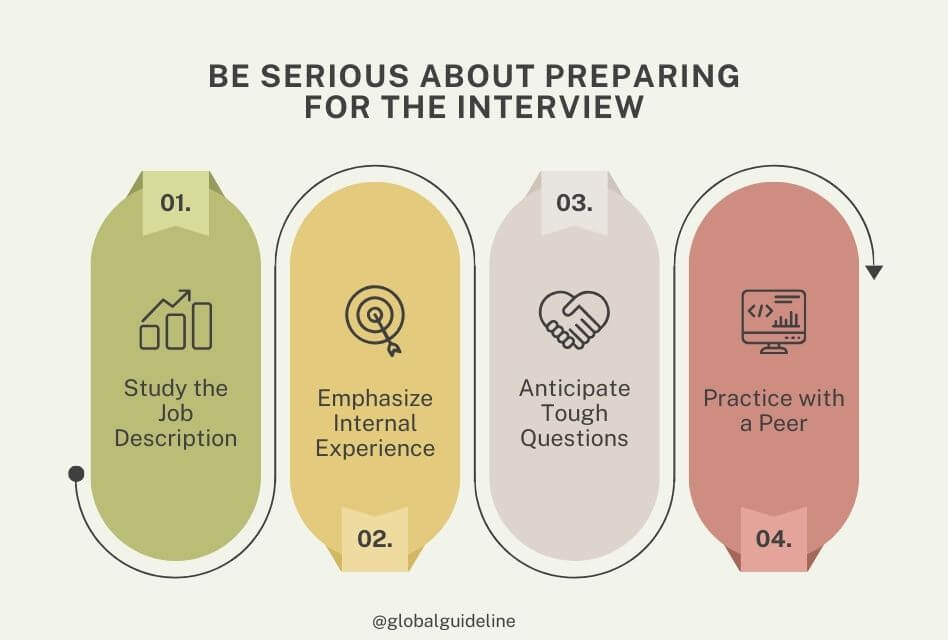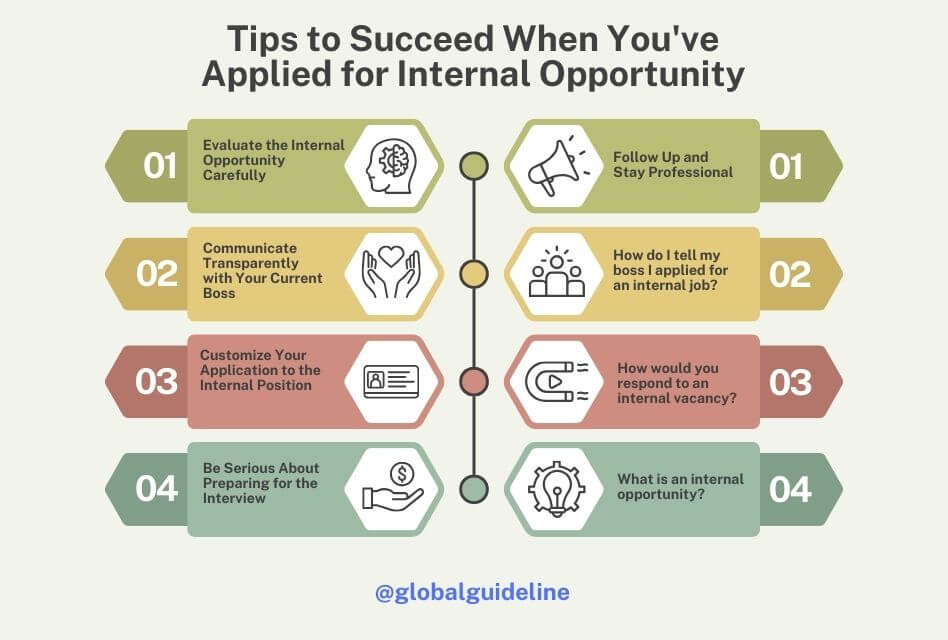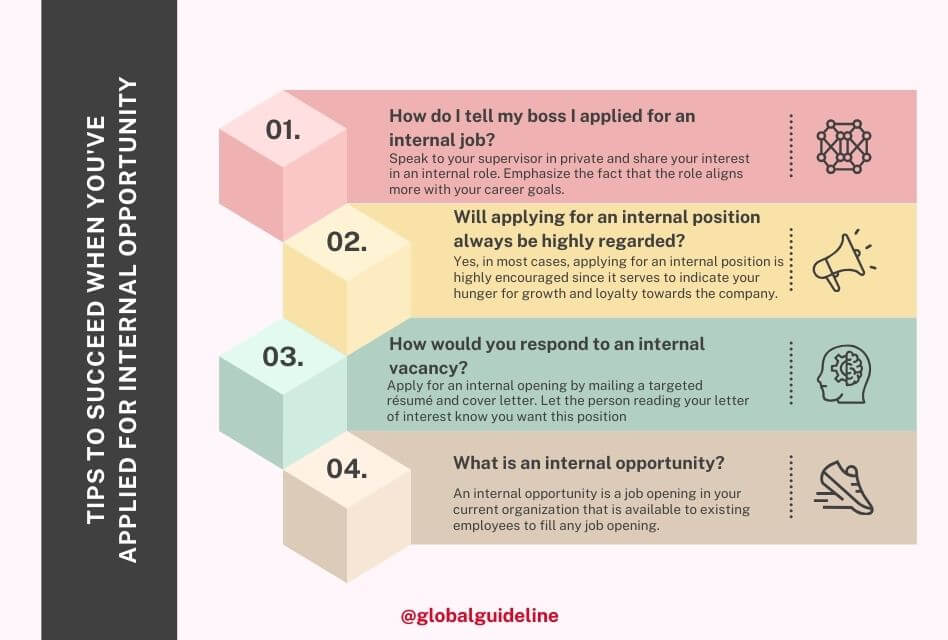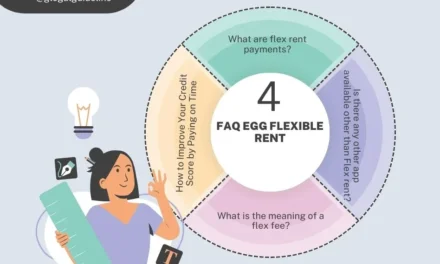Internal job opportunities can therefore be regarded as the sure deal in career elevation within your organization. Whether a person wants a promotion, lateral movement to another area of the company, or just the possibility of facing new challenges, internal job opportunities distinctively allow for continuous professional growth without having to leave behind a company in which one has built trust. However, to succeed at securing the internal role, one must be prepared carefully, communicate strategically, and have a very clear understanding of the internal hiring process. In this blog post, we will highlight the top five tips that will help you in succeeding if you have applied for internal opportunity.
Table of Contents

Understanding Internal Jobs: What They Are and Why They Are Important
But before moving on to give tips, let’s define what exactly is internal opportunity and why it’s important. An internal opportunity refers to a job opening existing in your current organization and is available to existing employees. Internal opportunities are usually advertised through internal job postings. Internal opportunities are either promotions or lateral movements that give employees a chance to grow further and build their careers up the corporate ladder.
Why Apply for an Internal Job?
Why would you apply for an internal job when you have other opportunities to go elsewhere? The reasons are as follows:
- Familiarity with the Organization: You already understand the culture, values, and expectations of the company. This can put you at an advantage over external applicants.
- Established Relationships: You may have developed good relationships with colleagues and managers that would help you in the process.
- Career Growth: Internal postings usually provide for career growth, new challenges, and professional development.
- Job Security: It’s way safer to move around within the same company than to start all over at a new organization.
- Loyalty/Commitment: Applying internally reflects that you are committed to the company; this commitment is likely to be regarded positively by hiring managers.
1. Evaluate the Internal Opportunity Carefully
One applying for an internal opportunity must begin the process with evaluating the opportunity. Position one clearly towards the job description, skills required, and expectations of the role to enable position one to answer questions of the heart satisfactorily, such as “Is this the right career step?” or “Does this fit with my strengths?”
How to Apply for an Internal Role: Assess the Opportunity
While evaluating the internal opportunity, ask the following questions:
- Will this role bring me achievement towards my continuous career goal in the mid- to long term?
- Do I have the requisite skills and experience to be out of the ordinary in this position?
- Will this position offer me growth and development opportunities?
- How does this role fit within the broader structure of the organization?
Understanding the scope and requirements of the job will help you tailor your application materials and prepare effectively for interviews.
The Internal Hiring Process
Internally, every organization will have a process to be followed in hiring. Get to understand how it goes, whether it is by making an application internally, having a fress interview with the department heads, or being assessed by the human resource department. With this understanding, you will know how to proceed effectively if you have applied for internal opportunity and increase your chances of success.
2. Communicate Transparently with Your Current Boss
One of the most sensitive areas of applying for an internal job is having to tell your current boss. You might be thinking, how do I inform my boss that I have applied for an internal job? Irrespective of the outcome, transparency and professionalism is the way to go about it.
How to Go About the Conversation
As you set out to talk to your boss, take into consideration the steps below:
- Choose the Right Time: Find a time when you are all alone and free to discuss your intention. You should ensure to have their complete attention.
- Be Truthful and Positive: Tell them that you want to take up this new opportunity and how could you refuse this kind of opportunity for your career; explain to him that this decision is to fulfill a lack in professional growth rather than dissatisfaction at work.
- Show Gratitude: Thank them for the support and opportunities they have provided to you. Be thankful for their time in mentoring and guiding you.
- Promise Continued Dedication: If you are not chosen for the new position, show your commitment to the current position and team.
Can You Apply for the Internal Position?
Can I apply for a job opening within the company? Yes. Most companies try to promote internal mobility because this helps them retain staff, increase staff satisfaction, and save on recruitment costs. If you have applied for internal opportunity, approaching the process professionally and openly can be a significant career move and can enhance your prospects for success within the organization.
3. Customize Your Application to the Internal Position
Applied for internal opportunity may feel like an informal application, but it is still very important to treat the process as formal and follow the same procedures as you would for an external application. Ensure that your resume and cover letter specifically reflect the job for which you have applied for internal opportunity; this step is crucial for making your skills and motives stand out.
How to Apply to an Internal Job Opening: Making an Application
In making an application for an internal job, do the following steps:
- Update Your Resume: Highlight Achievements, Skills and Experiences most relevant to the new role. The hiring manager does know about you, but they want to be well aware of your previous performance, and more critically, how it will enable you to fit very well within the new role.
- Write to Specifics in the Cover Letter: State your interest in the new position, and how your company experience will make you the best candidate. One could even simply outline a project or collaboration that speaks to that.
- Apply through the Right Channels: Once done with the whole process, go through the channels of application set through the company. It could be either through an internal job portal or direct HR. This is where you make all your documents perfect and professional.
Sample Email Applying for Internal Position
When sending this application, you would have to provide an email to attach those documents. Below is an email sample for an internal placement application:
Subject: Application for [Position Name] – [Your Name]
Dear [Hiring Manager’s Name],
I am writing this letter to express my interest in applying for the position of a [Position Name], which was recently published online. Having gone through the job description, I am convinced beyond doubt that my background and skills are a perfect fit for the job requirements.
As a dedicated member of [Your Department] for the past [X years], I have learned so much about how this organization functions and have tried to consistently apply it for the betterment of our team’s success. It’s a great opportunity for me to contribute to [New Department/Team], and I believe this role could match my career aspirations.
I have attached my updated resume and cover letter to this email for your consideration. I look forward to the opportunity to discuss how I can be of the most benefit in order to contribute to the further success of [Company Name].
Thank you for your time and consideration.
Sincerely,
[Your Name]
[Your Current Position]
[Your Contact Information]

4. Be Serious About Preparing for the Interview
Just because you’re an internal applicant doesn’t mean that you should skirt on preparation. Most of the times, an internal interview may be just like that of an external applicant, some even more intensive, with much higher stakes.
Preparing for the Internal Job Interview
- Study the Job Description: Know the requirements and role responsibilities inside and out. Be prepared to discuss how your current experience can be translated to meet these new demands.
- Emphasize Internal Experience: During the interview, bring up your knowledge of the company culture, values, and goals. For example, explain how you have contributed to your current team and how that will help you in your new role.
- Anticipate Tough Questions: Be prepared to answer the tough questions—the ones about why you are leaving your current role, how you will handle the transition, and what value you can bring to the new team.
- Practice with a Peer: If you can, take some time to practice your interview responses with a colleague or mentor who can provide feedback.
How Do You Respond to an Internal Vacancy?
When applying for an internal opportunity, bear in mind that you have to demonstrate professionalism and interest during the application or interview by explaining the reason you desire the role and its relevance to your career objectives. Highlight what is particularly unique about your potential value to this position, as this will strengthen your case if you have applied for internal opportunity.
5. Follow Up and Stay Professional
In the instance of an internal opportunity, following up after the interview process is very crucial. It will help you in showing your interest in the job opening continuously and with professionalism.
Following-up Best Practices
- Thank-You Email: Send a thank-you email to the hiring manager within 24 hours of your interview. Thank them for the opportunity to interview, and mention again your interest in the position.
- Be Patient but Proactive: After some reasonable period, it is quite all right to send a follow-up email, politely inquiring about the status of your application.
- Handle Rejection Gracefully: In case of rejection, handle the situation professionally. Express your gratitude for keeping you in mind for the position and let them know you continue to have interest in any future internal opportunities. This helps to keep the door open for future prospects by leaving on a positive note.
Applied for Internal Opportunity but Was Not Granted an Interview
What if you applied for internal opportunity and wasn’t granted an interview? Always seek feedback in such a case. You should get in touch with your hiring manager or HR department and seek some positive feedback about your application. You’ll be able to understand where you might need to pull up your socks for future opportunities.
FAQ Section
Q: How do I tell my boss I applied for an internal job?
A: Speak to your supervisor in private and share your interest in an internal role. Emphasize the fact that the role aligns more with your career goals. Express honesty and a positive attitude, but be thankful for support in the current role.
Q: Will applying for an internal position always be highly regarded?
A: Yes, in most cases, applying for an internal position is highly encouraged since it serves to indicate your hunger for growth and loyalty towards the company. Just be sure not to sidestep the chain of command or fail to become transparent with your intentions to your current manager.
Q: How would you respond to an internal vacancy?
A: Apply for an internal opening by mailing a targeted résumé and cover letter. Let the person reading your letter of interest know you want this position, why you are well-suited for it based on current experience within the company.
Q: What is an internal opportunity?
A: An internal opportunity is a job opening in your current organization that is available to existing employees to fill any job opening. Internal opportunities provide staff with the opportunity for career advancement, skill development, and the possibility of a new role within the same company.

Conclusion
Applied for internal opportunity is one of the most profitable ways to advance your career within any company. If you have taken the position seriously, been transparent with your boss, tailored your application materials appropriately, prepared thoroughly for the interview, and followed up professionally, it will greatly enhance your chances of success if you have applied for internal opportunity.
Remember that internal opportunities are not only doors to growth within a familiar setting but also proof of your dedication and loyalty to the company. Have self-assurance, professionalism, and an eagerness to step into the process if you have applied for internal opportunity. These qualities will help you effectively pursue your career goals within the organization.










